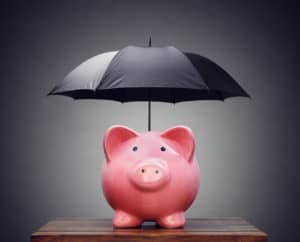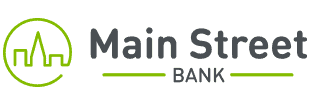What is an emergency fund? And why you need one yesterday.
An emergency fund is a cash reserve that is set aside for surprise expenses or financial emergencies. An emergency fund is an essential part of everyone’s financial portfolio. Typically, emergency funds can be spent on bills that don’t fall into your regular monthly budget.
Here are some common examples of situations where you might pull from your emergency savings: 
- Unexpected loss of employment
- Medical or dental emergencies
- Unexpected home repairs
- Car troubles
- Unplanned travel expenses
Regardless of your financial situation, it is important that you make building an emergency fund a top priority. Access to money in an emergency is an incredible advantage. With an emergency fund, you can comfortably and safely pay for many of the surprises that life throws your way.
How much money should you set aside?
Ideally, your emergency fund should be enough to cover three to six months of your expenses. If that seems like a substantial amount of money, you would be right! Our lives are often expensive. We just don’t feel that impact as heavily when we have stable jobs and aren’t frequently experiencing pricey surprises. But just because surprises are infrequent doesn’t mean that they aren’t inevitable. Don’t discount the importance of putting money aside.
You never want financial trouble to put you in an uncomfortable position. Having a sum of money saved means that you have a much lower likelihood of making a rash financial decision, like signing for a high-interest loan or pulling from your retirement accounts. A cash reserve will help keep you out of debt that would otherwise burden you for a long time.
How to build an emergency fund.
The most reliable way to start an emergency fund is to create a separate bank account for your emergencies. Then, set a savings goal for yourself, and determine how you want to contribute to your fund. Popular contribution methods include scheduled transfers, budgeting plans, or direct contributions from your paycheck. You can often set up direct deposit with your employer to contribute a set dollar amount or percentage of every paycheck to a specific account.
Regardless of how you set it up, you will feel and be more secure financially when you have that money saved. Once you hit your goal, you can switch those transfers to a different savings account to keep the ball rolling. Make sure that when you dip into your savings, you keep contributing to bring the balance back up.
How to get started.
An emergency fund is just one important piece of your savings plan. When you’re ready to make a financial plan, consider setting up a free consultation appointment with a certified financial advisor through Wealth Management Powered by Main Street Bank. One of our financial advisors will diligently work with you, guiding you with personalized recommendations for your specific scenario. They will help you create a savings plan that will balance everything perfectly for your unique situation.
What are you waiting for? Get connected to a financial advisor.
Registered Representatives offer securities through Securities America, Inc., Member FINRA /SIPC. Advisory services offered through Patriot Financial Group Insurance Agency, LLC in association with Wealth Management Powered by Main Street Bank. All are separate entities. There are no bank guarantees. Investments may lose value and are not bank deposits. Investments are not insured by any Federal Government Agency and are not FDIC insured.
| Not FDIC Insured | No Bank Guarantee | May Lose Value | Not a Bank Deposit | Not Insured by Any Federal Government Agency |


